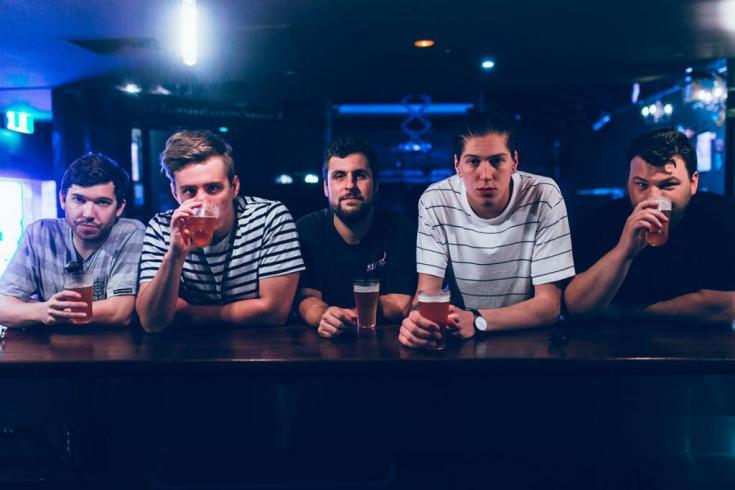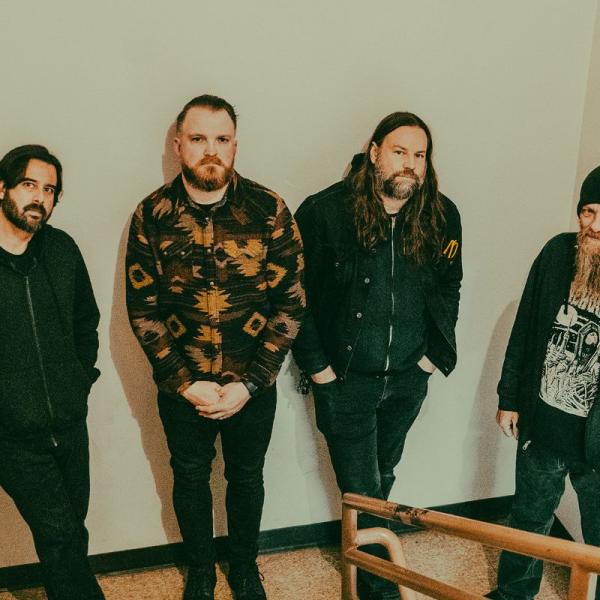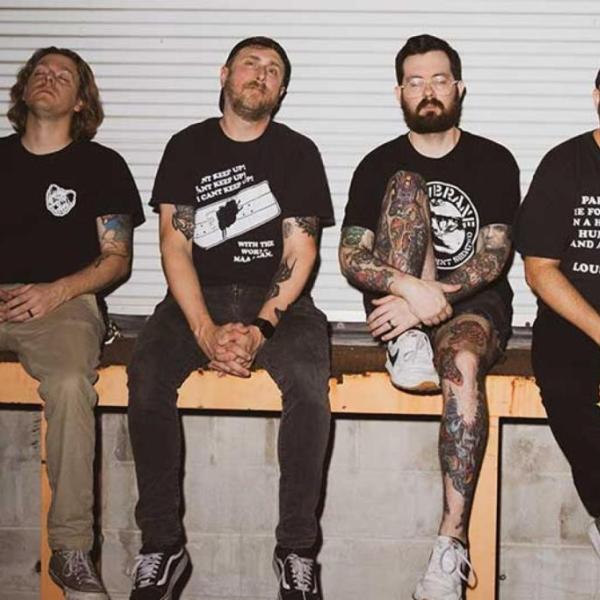Features

Earlier this year, Boston natives Somos released their new album "First Day Back" via Hopeless Records. It's a bit different from their debut full-length, but that's not saying it's less good. You can check it out for yourself by watching their new video for the song "Problem Child" below. To get there, you'll have to read our interview with vocalist/bassist Michael Fiorentino first though.
PRT: “First Day Back” has been out for a while now. How has the reception been so far? And how do you look back on the album yourself?
Michael: The reception has been mixed, which is what we expected. We tried new things on the album, including the incorporation of electronic elements on several songs. I'd say overall, the response has been positive, but I did see people who loved "Temple of Plenty" voice disapointment that "First Day Back" is a very different record. I will say that despite the polarized response online, the new songs have been going over very well live, particulary the more upbeat songs like "Thorn in the Side".
PRT: What inspired the move from Tiny Engines to Hopeless Records?
Michael: In the months immediately following Temple of Plenty's release, we were contacted by several labels who were interested in working with us. We eventually went with Hopeless because they offer a great set of resources and a very knowledgeable and hard working staff.
PRT: You recently released a video for the song “Problem Child”. Do you think that in this day and age it still pays off to put money in a video?
Michael: I do. Aside from the fact that millions of people watch them, a great video can add quite a bit to a song. I rememeber seeing the video for Modern Baseball's song "Your Graduation," and being completely floored by it. It was the first time I had heard the song, and the video drove home how good the song was, and even how special the band is.
PRT: I read somewhere the song is special to you because it’s the first time a song came together so fast. What does it feel like to create something that spontaneous versus going back to a song over and over until you feel it’s done?
Michael: Phil sent me a garageband version of the song, and I came up with the melody for the entire song in less than five minutes. That's one of the best feelings you can have as a musician, that thrill of knowing you are truly on target with something. It can be equally satisfying to return to something over and over again until you are happy with it, but it isn't quite the same "aha!" moment.
PRT: I wouldn’t describe Somos as a political band, but your lyrics seem to deal with a lot of socio-political themes. What is it that inspires you to write about a certain subject?
Michael: I feel like I am writing the same song over and over again, about the lonlieness and violence at the core of American society. The ideology of neoliberlism has encouraged us to embrace a highly alienating form of individualism, and I guess I am just fascinated by the way people, or groups of people, negotiate with that in their daily lives.
PRT: Last year you had to cancel some tour dates while you dealt with some personal issues. Is that something you would like to address in your songs in the future as well?
Michael: It won't be an intentional thing, but I am sure it will come through. I sometimes have a pang of regret for going public with the reason we dropped the tour, because I feel to some extent it has defined the way people view our band. However, in a big picture sense I am glad that we did, because I feel like it was small contribution towards the destigmatization of mental illness within our music community.
PRT: There seems to be a recent surge in addressing struggles with mental illness among emo bands. Do you feel there was still a bit of a taboo around the subject in the US? I always thought that it was way more accepted there than in Europe. I think in Europe we have this image that pretty much every American goes to a shrink at some point.
Michael: It is still stigmatized, even though millions of people suffer from it. Going back to what I mentioned earlier about the hyper-moralistic individualism of American society, people can feel ashamed, like they are a personal failure. That has to change, and indeed it is changing. But ultimately, we need more than just conversation. We need a healthcare system where everyone has access to free, quality mental health treatment.
PRT: What’s up next for you guys?
Michael: Writing, writing, writing, and touring.









